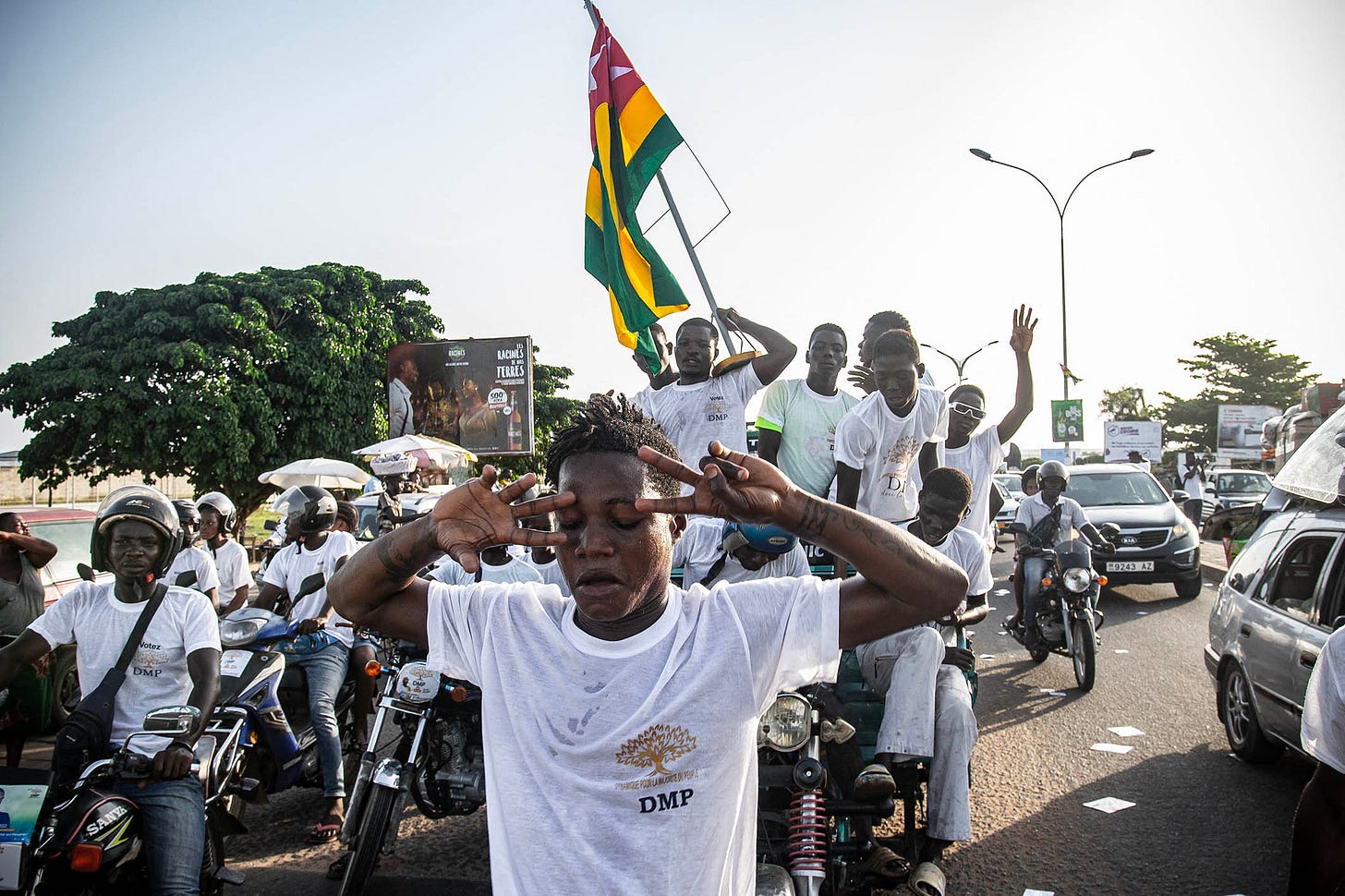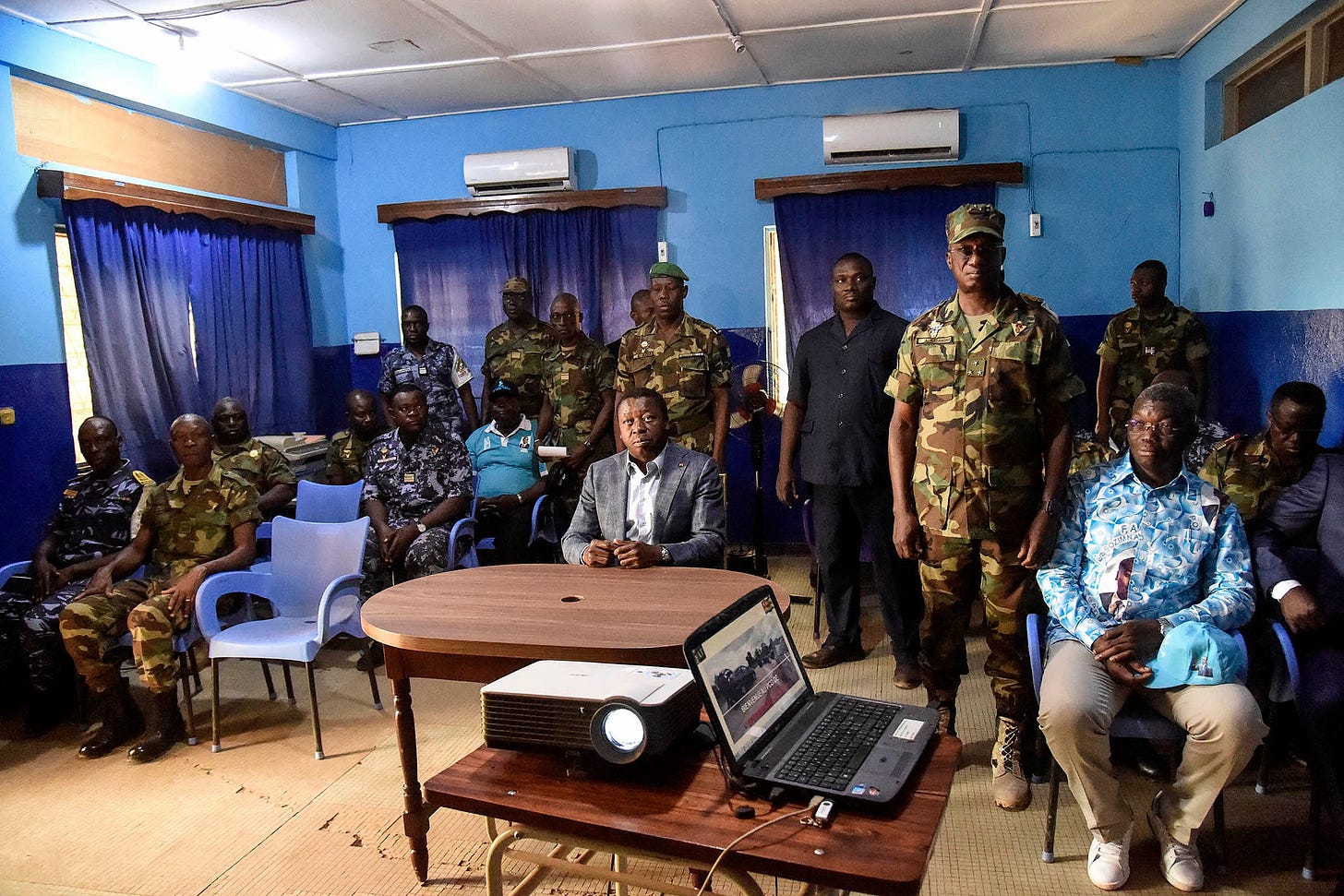The ‘elections’ in Togo were a demoralising charade
After voting last month, Togo has a new parliament. It looks a lot like all the ones that came before it – totally dominated by the ruling party. But this time around, there is one crucial difference
After voting last month, Togo has a new parliament. It looks a lot like all the ones that came before it – totally dominated by the ruling party. But this time around, there is one crucial difference: a newly-amended, highly controversial Constitution. Opposition leader Nathaniel Olympio reflects on what these changes really mean for his country.

Political struggle in Togo has gone on for decades. People are getting tired and are demoralised. But there are a few diehards like us who remain standing against this system.
The Togolese people are today very disinterested in politics, especially elections, and the last ones which just took place on 29 April showed this weariness. People did not rush to the election gate and voters shunned the ballot boxes. T here were no queues at polling stations – not just in Lomé, but throughout – which casts doubt on the government’s claim that turnout was a healthy 61%.
Obviously, abstention gives free rein to the regime who can boast of having Soviet-style scores. As expected, the ruling party, Union for the Republic, won almost everything: 108 of the 113 seats in the National Assembly, and 137 of the 174 seats in the regional elections. Eleven opposition parties shared what remained.
Being leader of the party with a parliamentary majority, President Faure Gnassingbé, now in his 19th year of power – having replaced his father who ruled for 38 years – will now start his first term under the new constitutional dispensation which he signed into law this week. There may be many more terms to come.
Earlier this year, the Senegalese successfully resisted an attempted constitutional coup by former president Macky Sall. But Senegal and Togo are not the same. Senegal, whatever people may say, is an imperfect democracy, while Togo is an autocracy, if not dictatorship. We live under a regime that has been in place for 58 years now. Don’t forget that when Faure Gnassingbé succeeded his late father, in 2005, he did so in violation of the Constitution, which called for the head of the National Assembly to take power.
He has now amended that Constitution (for the third time) to keep himself in power indefinitely. Direct presidential elections have been abolished. Now, Togolese will vote for a Parliament, and that Parliament will confirm (without debate) that the majority leader is the ‘President of the Council of Ministers’ – an executive prime ministerial role, for which there are no term limits.

Electoral fraud is an established norm. For 30 years, the ruling party has won every vote – presidential, legislative, municipal. The fraud is achieved through strict control of the electoral commission, judiciary and communications regulator.
Along with all this, there is repression to silence all dissent. Opponents are forced into exile, or jail; journalists are forced to tow the party line; international media are denied visas. When we recently organised a concert des casseroles – banging pots and pans to show frustration with a broken system, like what happened in Senegal – no media dared to cover it. Inside our party headquarters, gendarmes came with tear gas to take us out. Our press conference was banned.
These are the conditions under which the Constitution was amended, and in which the parliamentary elections took place. The text of the amendments was not made public until this week – nearly three weeks after it was passed by Parliament.
In a situation where the entire chain is controlled by the executive, all avenues for democratic evolution are closed. I think that Togo has arrived at a crossroads and needs to embark on a path of transition to avoid incalculable consequences. Pressure to do so must come from within Togo, of course, although this comes with grave risks: at least 500 people were killed by security forces when they protested Faure Gnassingbé’s seizure of power in 2005.
But pressure must also come from the international community, and especially Ecowas, the West African regional bloc, which has so far seemed to endorse Gnassingbé’s regime. Only this can lead the president and his supporters to engage meaningfully in the kind of political transition that is necessary to calm the country’s political climate.



